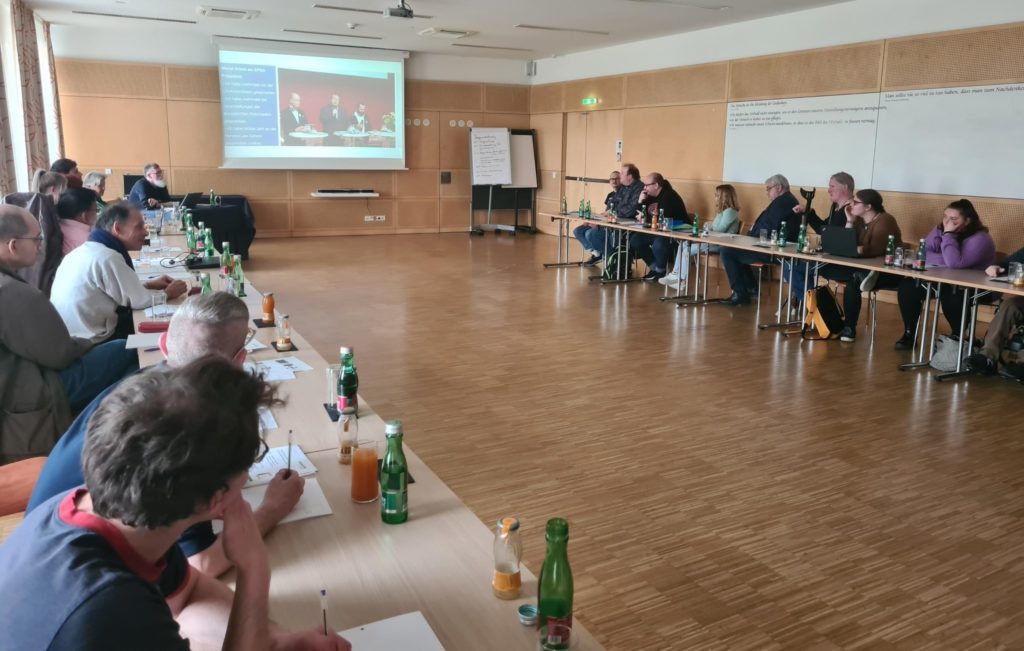#IncludeNews bring you updates about work done for inclusion of people with intellectual disabilities in Europe. This post is updated during the month.
Previously on #IncludeNews: March 2023.
Inclusive education in Italy
Italy abolished ‘special schools’ in 1977 and is the only country in Europe that has 99.97 per cent of special education needs students attending mainstream schools, writes The Times of Malta.
While Italy has no ‘special schools’, it has ‘specialised schools’ with all the resources needed to meet the specific needs of certain SEN students. Additionally, mainstream students also attend specialised schools. For example, a specialised school for blind students will have all resources needed to meet their needs, such as books in braille, but they learn in the same classroom alongside mainstream students.
In the Italian education system, ‘support teachers’ are qualified teachers who take part in planning, assessment and all other activities. Support teachers can choose to either work as class teachers or support teachers. This approach encourages co-teaching and during the course, several co-teaching methods were presented to the participants.
- Read also about education in Portugal.
EU Disability Card: Tell the European Commission what you think
The European Commission launched public consultation on the European Disability Card initiative.
- Deadline for answers is 5 May.
- The consultation is in all EU languages.
- There are also easy to understand versions of the questionnaire.
The consultation is part of work to make the European Disability Card available in all EU countries. This is one of the initiatives in the EU Disability Rights Strategy.
Netherlands: Covid deaths of people with intellectual disabilities
“Mortality from COVID-19 was significantly higher in the population with intellectual disabilities than in the general population, with a particularly large disparity at younger ages that declined with increasing age,” according to a new research paper.
Finland: More people with intellectual disabilities in work
Estimates are that there are 30,000 people of working age with intellectual disability in Finland. Only 2% of them have a paid job.
From the turn of the year, employers will receive 70 percent of their salary from the state if they hire a person with intellectual disabilities.
“We need more people who support people to find a job and who purposefully bring these people into working life. In several regions, there is no one working on these things.”
France: Easy to read news
Le Monde, quite important French newspaper, has easy to read section.
Germany: What is support for self-advocates
Lebenshilfe have a new video, in German, about supporting self-advocates.
European Accessibility Act
European Commission calls on Denmark, Estonia and Italy to fully transpose the Directive on accessibility of products and services for persons with disabilities.
Council of Europe: France violates rights of people with disabilities
Unapei, alongside other organisations, prepared a complaint about the situation of people with disabilities in France.
Inclusion Europe and European Disability Forum submitted this complaint against France to the Council of Europe Committee on Social Rights. It is based on the European Social Charter.
The Committee found France violates the rights of people with disabilities:
- In accessibility
- Support
- Education
- Health, and other areas.
The Council of Europe has now declared the lack of support and shortage of support services, socio-economic injustices, difficulty in accessing housing and health care, but also the refusal of schooling. The rights of people with disabilities are violated by the French state.
In detail:
- Our article
- The decision is here.
- Unapei have a campaign based on the decision.
The merits of the decision are much relevant to every country under the European Social Charter.
One of the issues in the collective complaint is that France sends people with disabilities into institutions in Belgium. Here is an article about the issue from March (in French).
FDUV named Association of the Year 2023
FDUV, Inclusion Europe member from Finland, was named Association of the Year following their campaign on disability support law.
FDUV’s active advocacy culminated when the health care reform came into force and the new Act on Services for People with Disabilities was approved by Parliament. The long-term and purposeful advocacy work, which is a role model for other organizations, has borne fruit and gives FDUV the title of Association of the Year.
“FDUV is a good example of how to promote and give visibility to the needs and opinions of its members,” the organisers said.
Congratulations!
New report on education, from Inclusion Ireland
The Pathway to Inclusive Education report follows a conference on the topic.
Hear our Voices! self-advocacy conference
The conference takes place in Tallinn, Estonia from 20 to 22 September 2023.
The main topic of the conference is: Make it real! How to promote self-advocacy in countries where it is not strong.
There will be workshops led by self-advocates, who share their experience in different ways self-advocacy works:
- How they came to be a self-advocate.
- What it takes to organise self-advocacy groups and organisations.
- What a good support to self-advocate looks like.
- Where self-advocates speak to share their views and knowledge.
There will be discussions about what governments and organisations need to do to support and include self-advocates.
- Register here (participants from outside Estonia).
Are you coming to the European Disability Parliament on 23 May in Brussels?
Register for a training/meeting with Inclusion Europe members too!
New videos about EU disability strategy and deinstitutionalisation.
Lebenshilfe Austria organised self-advocates’ exchange
Register: Hear our Voices! self-advocacy conference in Tallinn, Estonia from 20 to 22 September 2023.

Self-advocates meeting in Austria. Source: FB Lebenshilfe Austria
Subscribe to Include newsletter for news about inclusion and rights of people with intellectual disabilities and their families.





